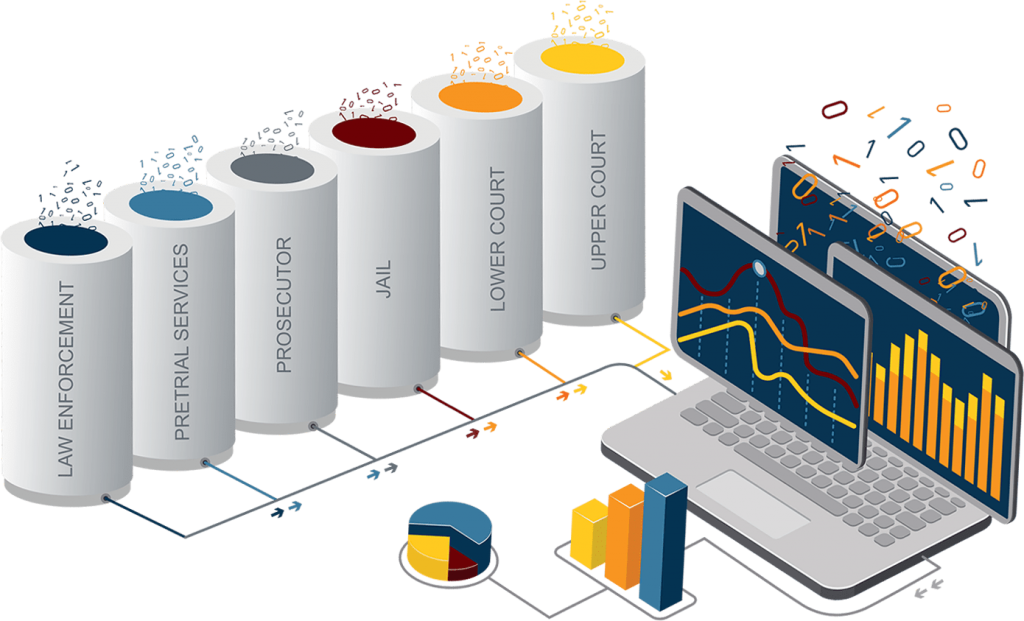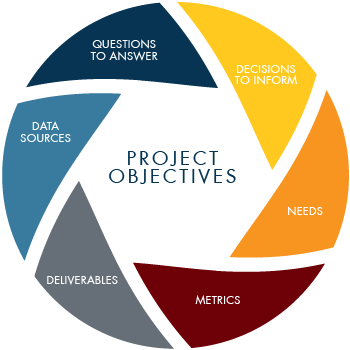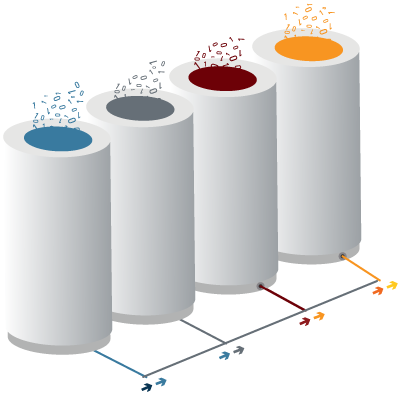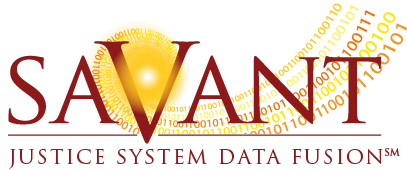Transforming Siloed Data Into
Justice System Insights

About Us
Luminosity, Inc. is a nationally recognized and highly regarded small, women-owned business whose mission is to advance pretrial justice in America. For nearly two decades, we have leveraged data analytics and implementation science to improve public safety, fairness, and cost effectiveness in communities across the country.
Luminosity’s Data Analytics team consists of expert business analysts, data architects, data engineers, and data scientists. Our team is the leading authority on linking and integrating siloed data from independent justice system agencies and creating usable, accessible, interpretable, and actionable data. Luminosity’s Transforming Siloed Data Into Justice System Insights initiative is underway in cities and states across the US.

Services
Transforming Siloed Data Into Justice System Insights
Recognizing that a lack of usable data is one of the biggest barriers to advancing pretrial justice, Luminosity’s Data Analytics team works with cities, counties, and states to analyze justice system data. Although analysis of data from one justice agency can be useful, analyzing data from multiple justice agencies is exponentially more valuable in identifying justice system trends and laying the foundation for implementation of best practices. Luminosity’s Data Analytics Team is dedicated to transforming siloed data from independent justice system agencies into usable, accessible, interpretable, and actionable data. The transformed data allows for the effective monitoring of system performance in real time; empowers strategic and data driven decisions; fuels research and the discovery of best practices; increases transparency and accountability; and illuminates actionable insights. Read on for descriptions of each stage of Luminosity’s methodological approach for Transforming Siloed Data Into Justice System Insights.

Define Project Objectives
It is critical to understand the context of a project from the outset. We work with our clients to ascertain the questions that must be answered, identify the decisions that need to be informed, determine the reasons the insights are needed, and define the deliverables that are expected.

Determine Project Feasibility
A project might be highly desirable, but it may not always be feasible. This stage of the project is focused on exploring whether the data needed to complete the project are collected, accessible, and usable.

Transform the Data
Our Data Analytics team possesses vast knowledge and expertise in transforming raw justice system data. We extract, cleanse, conduct quality assurance checks, and validate each data source.

Conduct Statistical Analysis
This stage begins with exploratory data analysis to discover patterns, identify anomalies, and test assumptions. Exploratory data analysis relies heavily on statistical methods and graphical representations of the data.

Communicate the Results
The final stage of analyzing justice system data involves preparing the results in ways that stakeholders can easily consume, respond to, and act on.
Featured Projects
Transforming Siloed Data into Actionable Insights
Luminosity is currently working with the NYC Criminal Justice Agency to transform NYC's siloed data into usable, accessible, interpretable, and actionable data. The transformed data allows for the effective monitoring of system performance in real time; empowers strategic and data driven decisions; fuels research and the discovery of best practices; increases transparency and accountability; and illuminates actionable insights.
Implementing saVant – Justice System Data Fusion℠
In recent years, Mecklenburg County (Charlotte), North Carolina, implemented a series of sweeping pretrial reforms. They also serve as a MacArthur Foundation Safety and Justice Challenge site with the stated goal of developing and implementing strategies to positively impact the main drivers of the local jail population.
Criminal Legal System Key Performance Metrics
New York State passed sweeping Criminal Justice Reform legislation, dramatically reducing the use of cash bail and pretrial detention, modifying the rules governing the sharing of evidence, and revising practices intended to ensure a defendant's right to a speedy trial.
Blog
Simple question, still challenging to answer after all these years. Not because we don’t know what we do – our mission is to advance pretrial justice in America and we believe our partnerships with communities across the country do just that. But what does that look like?
For over 60 years, communities across the country have struggled with their pretrial justice systems. As the number of people incarcerated before trial grew, so did the stories being told about them.
As communities across the country debate whether reforms to our pretrial justice systems are needed and which reforms would result in safer communities and a more just system, they must ask themselves what they actually know about their systems and the people in them.


















